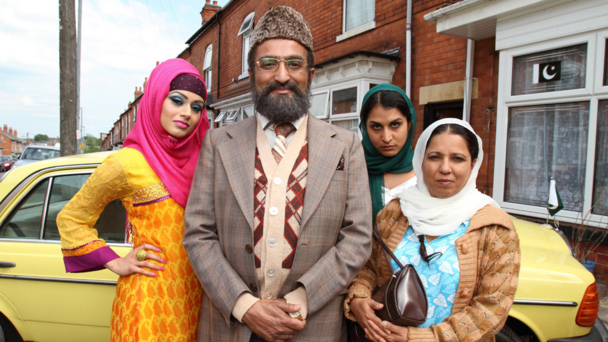The BBC recently aired its latest sitcom, Citizen Khan, centered around the exploits of Mr Khan, a Birmingham based Pakistani Muslim ‘community leader’. I’ve seen snippets of the character (played by Adil Ray) in sketches and comedy shorts available online, as such I didn’t have high expectations for the show.
Having seen
the first episode, many of my fears have been realised. The show is at best an
unfunny, dated comedy. At worst, it propagates dangerous and divisive narratives
about Muslim and migrant communities in the UK.
To get a
sense of why I find Citizen Khan problematic, its best to begin with
sub-culture comedy in the mainstream done best. The fantastic Goodness Gracious Me.
The
acclaimed ‘Going Out For an English’ skit,
voted as one of the greatest comedy sketches in history, is not only funny but
challenging and subversive. The sketch holds up a mirror to society. It reminds
the viewer racism is not about the colour of skin but about power (or lack
thereof) and privilege. It says something about the world we live in, and is
also a catalyst for change – comedy genius in the truest sense.
Compare
this to the comedy in Citizen Khan. What narratives and ideas does it propagate?
The main character is a greedy and stingy (a recycled anti-semitic stereotype
often applied to the British Asians). The mother is more concerned with ‘shame’
than the well-being of her children, an unfounded but oft-repeated
generalisation of British South Asians. The youngest daughter lives a
double-life, religious on the exterior but literally unveiling out of sight of
her parents to reveal her ‘true’ self. This one character reinforces the notion
that all Muslim women who veil to do, to some extent, against their own will.
The only
straight-man in the show is a white British convert to Islam. This may appear
as an innocent foil to Mr Khan’s quirks, but it is also a statement that
British Muslims are ultimately so different that a British white man is the
only way to bridge that gap.
Goodness
Gracious Me constantly reminded the viewer of the difficulty of negotiating
identity for British Asians. Whether the ‘everything is Indian’ sketch,
or the repeated attempts of the Coopers to assimilate wholesale in a perception
of middle-class British culture or the tensions in cross-generational understanding of faith,
the show never provided a simple answer. It recognised that identity is fluid,
changing, individual and most importantly, multi-layered.
Compare
once again to Citizen Khan. There is no subtlety here. He is Pakistani, he
adorns his car and home with Pakistani flags, and refers to himself on numerous
occasions as Pakistani. It repeats the right-wing assertion that migrant
communities refuse to integrate, hold their
allegiance to foreign countries and are never more than transient visitors to Britain. As the comedy is focused on Muslims, this assertion is even more out of context considering the majority of British Muslims were born in the UK.
One
positive of the show is that it avoided the terrorist stereotypes (although
Chris Morris proved that this too can be tackled with comedy).
Yet with such
great British Muslim comedians out there such as Hamza Arshad and Imran Khan,
it’s disheartening to see comedy take such a step back with Citizen Khan.
NB: Please take the time to visit On Religion - a new magazine (hard copy and online) on faith, religion and society.

No comments:
Post a Comment